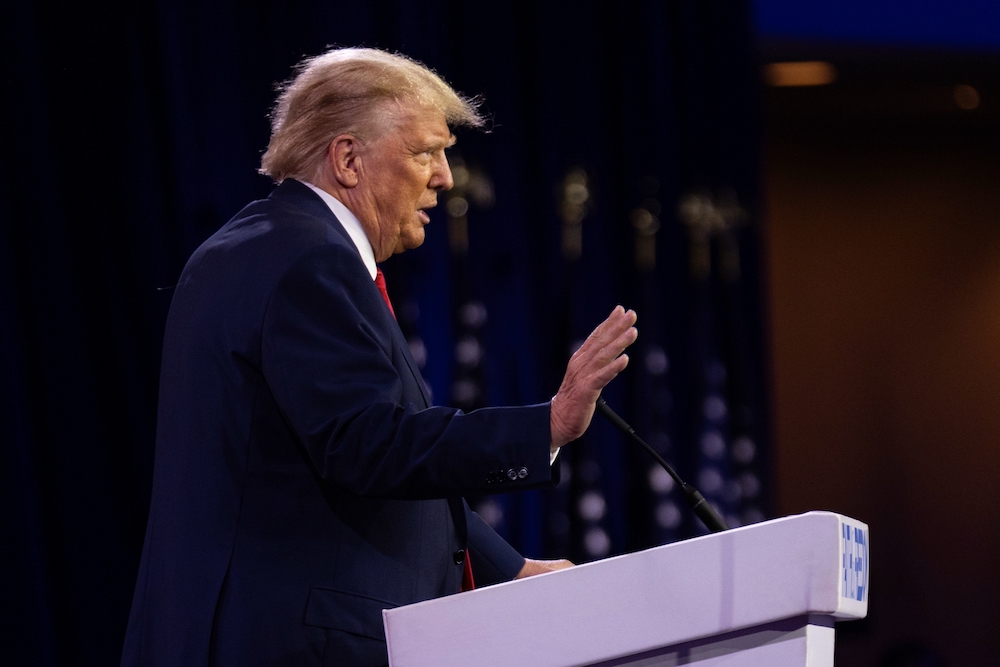Politics
Democrats PANIC As Trump’s Support From Minorities Reaches GOP’s Highest In 50 Years

Former President Donald Trump’s support among minority voters has reached levels not seen for a Republican in half a century, causing alarm and concern within Democratic ranks.
According to a recent report by The Washington Post, Trump’s approval ratings among Black and Hispanic voters have seen a significant uptick. This surge in support is noteworthy, especially considering the contentious nature of Trump’s tenure and the polarized political climate.
Further amplifying Democratic concerns, The Western Journal highlighted the Democratic National Committee’s (DNC) growing anxiety over these developments. The DNC is in “panic mode” as Trump’s minority support levels surpass those of any Republican in the past 50 years.
The reasons for this shift in minority voter sentiment remain a topic of debate among political analysts. Some attribute it to Trump’s economic policies, which, before the pandemic, saw record-low unemployment rates for Black and Hispanic Americans. Others believe it’s a result of dissatisfaction with the current administration’s handling of key issues.
Recent polling data has suggested that Trump’s popularity is surging in crucial battleground states as well, jeopardizing Biden’s chances of re-election in 2024.
In a hypothetical match-up for the November 2024 election, both Biden and Trump are tied, each receiving 39% of the vote, leaving a significant 20% of voters undecided. However, Trump seems to have gained an edge in the seven states where the 2020 presidential election was most closely contested and ultimately decided.
These states include Georgia, Arizona, Wisconsin, Pennsylvania, North Carolina, Nevada, and Michigan. In these pivotal states, Trump leads with 41% to Biden’s 35%, with a notable 24% still undecided.
Despite facing numerous federal and state criminal charges related to his attempts to overturn Biden’s 2020 election win and alleged mishandling of classified documents post-presidency, Trump remains a formidable political contender. He is anticipated to spend a considerable amount of 2024 in court while simultaneously campaigning.
Currently, Trump holds a slight lead among independents, garnering 32% support compared to Biden’s 30%. With 38% of independents still undecided, the race appears to be neck and neck.
Furthermore, Reuters revealed that 77% of respondents, including 65% of Democrats, believe Biden is too old to be president, a trend that has really spiked over recent months. In contrast, 56% feel the same about Trump. When it comes to mental sharpness, only 39% believe Biden is mentally fit for the presidency, while 54% believe Trump is mentally equipped to handle the challenges of the role.
Economic concerns also weigh heavily on voters’ minds. Despite the White House’s assurances of a robust economy, 73% of respondents feel their economic situation is the same or worse than before the COVID-19 pandemic. Only 35% are optimistic about their economic prospects improving in the coming year.
Last week, Trump overtook Biden in RCP polling average as well. The average showed Trump leading Biden by a narrow margin of 0.4 percentage points, 44.8% to 44.4%. The RCP average is often viewed as a reliable barometer of public sentiment by averaging multiple polls.
Several notable polls have been factored into this such as The Wall Street Journal, CNN, and the New York Post. The shift indicates the resurgence in Trump’s popularity and poses more questions about the Biden administration’s standing with the American public. If Biden cannot rejuvenate this dwindling support by November 2024, it will perpetuate a decade-long trend of diminishing Democratic strength among demographics traditionally viewed as the bedrock of the party.
The data suggests that Biden’s lukewarm support from these voters is a significant factor in the neck-and-neck race in early national surveys. This is despite Biden maintaining his appeal among white voters at levels comparable to four years ago.
Regardless of the reasons, this shift in voter dynamics could have significant implications for the upcoming election. The Democratic Party, traditionally reliant on strong minority voter turnout, may need to recalibrate its strategies to address this unexpected challenge.

